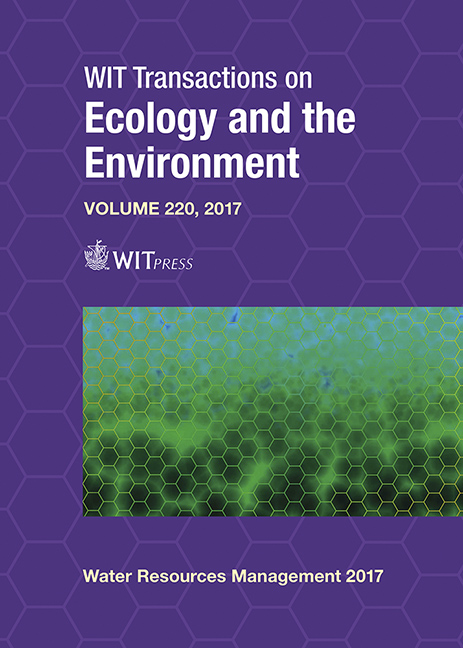A POSITIVE APPORTIONMENT FRAMEWORK TOWARDS ENHANCING COOPERATION IN THE JORDAN RIVER BASIN
Price
Free (open access)
Transaction
Volume
220
Pages
11
Page Range
3 - 13
Published
2017
Paper DOI
10.2495/WRM170011
Copyright
WIT Press
Author(s)
ROLA QUBA’A, MUTASEM EL-FADEL, IBRAHIM ALAMEDDINE, MAJDI ABOU NAJM
Abstract
The Jordan River Basin (JRB) has presented for long a sensitive water management challenge due to its direct association with water scarcity and socio-political conflicts amongst its riparians. This study emphasizes the limitations of existing bilateral agreements with respect to water allocation and argues for the potential of using renewable energy to catalyse a more lasting agreement within the basin based on mutual interest and benefit sharing beyond the river with third party involvement under the context of a “Positive Apportionment Framework”. A SWOT analysis for the framework indicated that while there are incentives for all riparians and for third parties to collaborate towards attractive benefits, there are equally challenging weaknesses and threats. In an effort to rank the relative importance of these factors, the analytic hierarchy process (AHP) was applied. Responses from experts indicated that the highest influencing factors were the external threats stemming from regional politics and existing instability. These were followed by the weakness of the framework’s ability to operate under existing economic disparities, regulatory and institutional discrepancies among riparian states, as well as deep-rooted socio-political conflicts between riparians. Still, highly influencing strengths and opportunities exist to build upon, such as the need to enhance water supply under an integrated water resources management and the potential for the framework to balance the bargaining power between riparians.
Keywords
transboundary water management, benefit-sharing, Jordan River Basin





